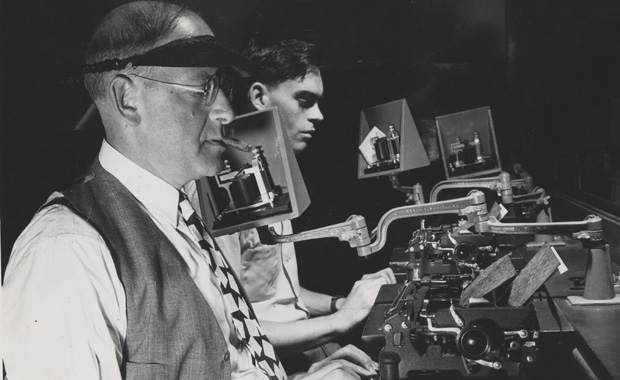
noun
- an apparatus, system, or process for transmitting messages or signals to a distant place, especially by means of an electric device consisting essentially of a sending instrument and a distant receiving instrument connected by a conducting wire or other communications channel.
- Nautical. an apparatus, usually mechanical, for transmitting and receiving orders between the bridge of a ship and the engine room or some other part of the engineering department.
- a telegraphic message.
verb (used with object)
- to transmit or send (a message) by telegraph.
- to send a message to (a person) by telegraph.
- Informal. to divulge or indicate unwittingly (one’s intention, next offensive move, etc.), as to an opponent or to an audience; broadcast: The fighter telegraphed his punch and his opponent was able to parry it. If you act nervous too early in the scene, you’ll telegraph the character’s guilt.
verb (used without object)
- to send a message by telegraph.
noun
-
- a device, system, or process by which information can be transmitted over a distance, esp using radio signals or coded electrical signals sent along a transmission line connected to a transmitting and a receiving instrument
- (as modifier)telegraph pole
- a message transmitted by such a device, system, or process; telegram
verb
- to send a telegram to (a person or place); wire
- (tr) to transmit or send by telegraph
- (tr) boxing informal to prepare to deliver (a punch) so obviously that one’s opponent has ample time to avoid it
- (tr) to give advance notice of (anything), esp unintentionally
- (tr) Canadian informal to cast (votes) illegally by impersonating registered voters
v.1805, from telegraph (n.). Figurative meaning “to signal one’s intentions” is first attested 1925, originally in boxing. Related: Telegraphed; telegraphing. n.1794, “semaphor apparatus” (hence the Telegraph Hill in many cities), literally “that which writes at a distance,” from French télégraphe, from télé- “far” (from Greek tele-; see tele-) + -graphe (see -graphy). The signaling device had been invented in France in 1791 by the brothers Chappe, who had called it tachygraphe, literally “that which writes fast,” but the better name was suggested to them by French diplomat Comte André-François Miot de Mélito (1762-1841). First applied 1797 to an experimental electric telegraph (designed by Dr. Don Francisco Salva at Barcelona); the practical version was developed 1830s by Samuel Morse.
- A communications system in which a message in the form of short, rapid electric impulses is sent, either by wire or radio, to a receiving station. Morse code is often used to encode messages in a form that is easily transmitted through electric impulses.
 Liberal Dictionary English Dictionary
Liberal Dictionary English Dictionary